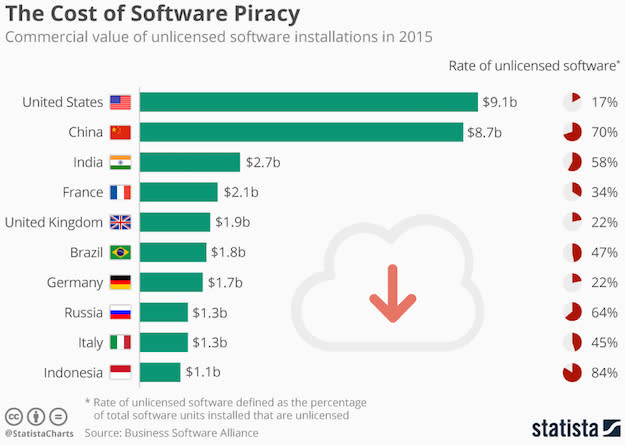Which countries pirate the most expensive software?

For decades now, piracy has remained a lingering problem that software companies have tirelessly and unsuccessfully tried to eliminate. So whether it's a college student downloading a cracked version of Photoshop or an entire small business skirting around the licensing rules of pricey enterprise software, piracy, for many companies, simply remains an unfortunate cost of doing business. In fact, it's estimated that nearly 40% of all software installed on PCs across the world hasn't been "properly licensed."
DON'T MISS: The most comprehensive Pokemon Go guide on the internet
Naturally, giant software companies like Microsoft have more challenges to face than others. Speaking to this point, you might recall that Microsoft in 2015, in an effort to stem rampant Windows piracy, announced that it would offer Windows users in China a free upgrade to Windows 10 even if their current copy of Windows was pirated. Indeed, piracy overseas tends to be a huge headache for many software firms, both big and small.
But you might be surprised to learn that the country with the highest value of installed pirated software isn't China or India, but the United States. According to the following chart from Statista, the commercial value of in-use pirated software in the U.S. checks in at an astonishing $9.1 billion. China follows closely behind with $8.7 billion while India, France and the U.K. occupy the next few slots with figures that check in at $2.7, $2.1 and $1.9 billion, respectively.

What's interesting, though, is that the rate of unlicensed software in the United States is actually lower than every other country on the list. While the incidence of pirated software in the U.S. is just 17%, the figure rises to 70% in China. The takeaway here is that while a greater percentage of individuals in non-U.S. countries pirate software, individuals in the U.S. pirate much more expensive software.
Trending right now:

